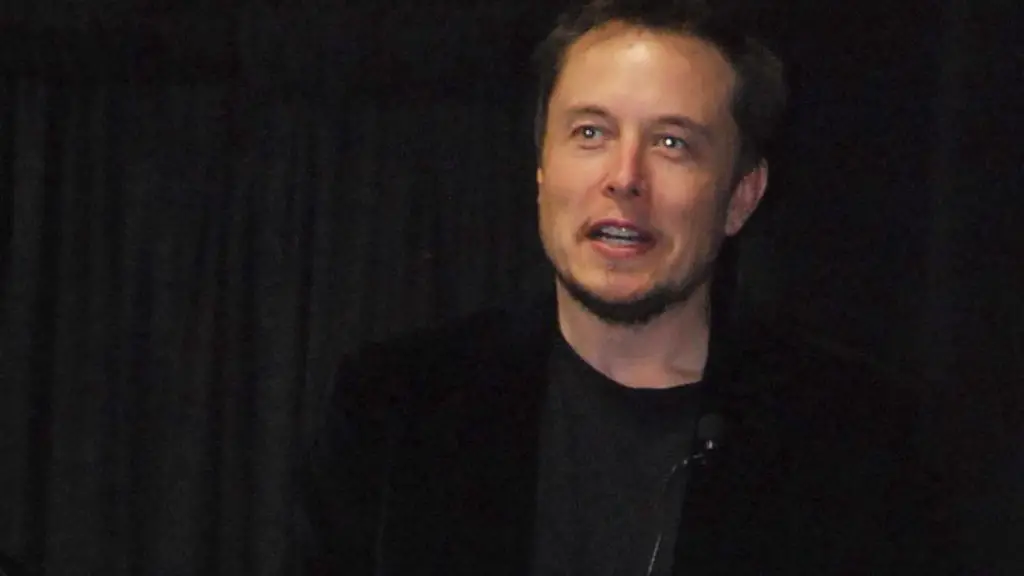Reality Behind Mark Zuckerberg
Mark Zuckerberg is one of the most well-known tech moguls in the world. He is the founder and CEO of Facebook, and is worth billions. But is he really as great as he is portrayed? Many people have started questioning how ‘evil’ he really is.
In 2018, Zuckerberg was accused of developing a fake data mining project, using it to track users’ data without their knowledge or consent. The data was then used to influence political campaigns and generate revenue. Zuckerberg denied the project, claiming it was never fully developed. However, reports say that executives approved the project at a company meeting and Facebook staff worked on it for months.
In 2019, a report by The Washington Post revealed that Zuckerberg tried to manipulate journalists and use smear tactics to discredit any negative publicity about Facebook. The same year, allegations emerged that Facebook had given data to over 150 tech companies, including Microsoft and Amazon, without users’ consent. This exposed the personal data of millions of people to third parties.
Some people argue that Zuckerberg is a victim of his own success. As Facebook grew in size, it became easier for people to find out controversial information about him. Others believe he has created an artificial image of himself and has been exploiting it to gain more power and money.
Experts say that Zuckerberg has failed to take responsibility for his actions. Reports say that he has misled authorities and downplayed the impact of data breaches. For example, Facebook was fined a whopping $5 billion for its Cambridge Analytica scandal – which was far less than the amount of money Facebook had earned from the data.
Furthermore, he has been criticized for his apparent inability to control hate speech and misinformation on the platform. In 2019, a report by the Anti-Defamation League found that Facebook had allowed hate speech to flourish on its platform, calling it “a toxic environment for minorities.”
The way Zuckerberg is portrayed in public has raised questions about how ‘evil’ he really is. While many believe he has used his power and influence to benefit himself, others argue that he is being unfairly targeted and is the victim of his own success.
Exploitation of Facebook User Data
Reports suggest that Facebook is exploiting user data for its own gain. In 2018, investigative journalists uncovered the Cambridge Analytica scandal, in which user data was collected and used for marketing campaigns without their knowledge or consent.
An investigation by The Guardian in 2019 revealed that Facebook had collected and sold troves of user data to companies such as Microsoft and Amazon. This data included personal information such as email addresses, birthdays and phone numbers, as well as information about users’ friends and family.
Another report by The New York Times found that Facebook had used data from third-party apps to target users with ads. It also used data from third-party apps to track users’ location and browsing habits, and had given that data to advertisers.
Experts say that Zuckerberg has failed to take responsibility for his actions and has downplayed the impact of data breaches. For example, Facebook was fined a whopping $5 billion for its Cambridge Analytica scandal – which was far less than the amount of money Facebook had earned from the data.
Furthermore, Zuckerberg and Facebook have been criticized for their lack of transparency around user data. In 2018, Facebook admitted that it had shared user data with Chinese companies, but failed to disclose how it had done so and what data had been shared.
Overall, reports suggest that Facebook is exploiting user data for its own gain, and is failing to take responsibility for its actions.
Mark Zuckerberg’s Influence on Society
Mark Zuckerberg is one of the most influential figures in the world today. As the founder and CEO of Facebook, he has changed the way people communicate and shape their identities online.
Zuckerberg has been credited with bringing down barriers between people, democratizing communication and connecting the world, regardless of location or economic status. His work on Facebook has been praised for making it easier for people to share their stories, find new opportunities and create meaningful connections.
At the same time, experts have raised concerns that Zuckerberg has too much power. They argue that Facebook’s vast user base and influence gives Zuckerberg control over public opinion, and the ability to shape public discourse in a way that serves his own interests.
Some experts argue that Zuckerberg’s influence has been a force for good, while others argue that it has fostered an atmosphere of polarisation and misinformation. For example, Facebook has been accused of allowing hate speech to flourish on its platform, and reports suggest it has allowed foreign actors to interfere in elections.
Overall, Zuckerberg’s influence on society is undeniable. But whether his influence has been a force for good or bad is a matter of debate.
Mark Zuckerberg’s PR Strategies
Mark Zuckerberg has been criticized in the media for a range of scandals related to data breaches, privacy violations and misuse of user data. In response, he has employed a range of strategies to try and change the public’s perception of him.
In 2019, it was reported that Zuckerberg had hired a team of public relations executives to portray him as a humble, honest and passionate leader. He has also used his public appearances and interviews to paint a picture of himself as a responsible steward of the internet and of democracy.
At the same time, Zuckerberg has adopted a strategy of minimizing the potential consequences of any mistakes made by him or Facebook. For example, in the aftermath of the Cambridge Analytica scandal, he downplayed the breach as a “mistake,” while also failing to take responsibility for it.
In addition, Zuckerberg has been accused of using smear tactics to discredit any negative publicity about Facebook. Reports say he tried to influence journalists, using information about their background or personal lives in an effort to discredit them.
Overall, Zuckerberg has adopted a range of strategies to try and manage his public image. However, many critics argue that he has not taken true responsibility for his actions, and has instead adopted a strategy of minimizing any potential consequences.
The Controversy Surrounding Mark Zuckerberg
Mark Zuckerberg has been shrouded in controversy since the founding of Facebook. Questions about the ethical implications of his power and influence have been raised, as well as allegations of censorship and data misuse.
Many people have criticized Zuckerberg for his apparent lack of empathy, and for not doing enough to protect users from malicious actors on the platform. He has also been criticized for his lack of action on tackling hate speech and for his decision to allow politicians to spread false information.
Additionally, Zuckerberg has been accused of taking too much power and control away from users. Critics argue that he has too much influence, and that his decision-making is not always as transparent as it should be. For example, he has been accused of blocking or removing posts without providing adequate explanation or justification.
Overall, there is no shortage of criticism when it comes to Mark Zuckerberg. Many people have raised questions about his power and influence, as well as his motivations and the way he has handled a range of controversies.
The Question of How Evil is Mark Zuckerberg
The question of how ‘evil’ Mark Zuckerberg really is has been the subject of debate for many years. While some believe he has used his power and influence to benefit himself, others argue that he is the victim of his own success and is being unfairly targeted.
Critics point to a range of examples to back up their claims. Reports suggest that Zuckerberg has misled authorities and has failed to take responsibility for his actions. Additionally, he has been accused of exploiting user data, as well as employing smear tactics to discredit negative publicity and mismanaging hate speech on the platform.
Others, however, point to the positive sides of Zuckerberg’s influence. Reports suggest that he has democratized communication and allowed people across the world to connect and share their stories.
Overall, the question of how ‘evil’ Mark Zuckerberg is is a complex one. While many have raised questions about his power and influence, others have praised him for his work in making the world more connected.



